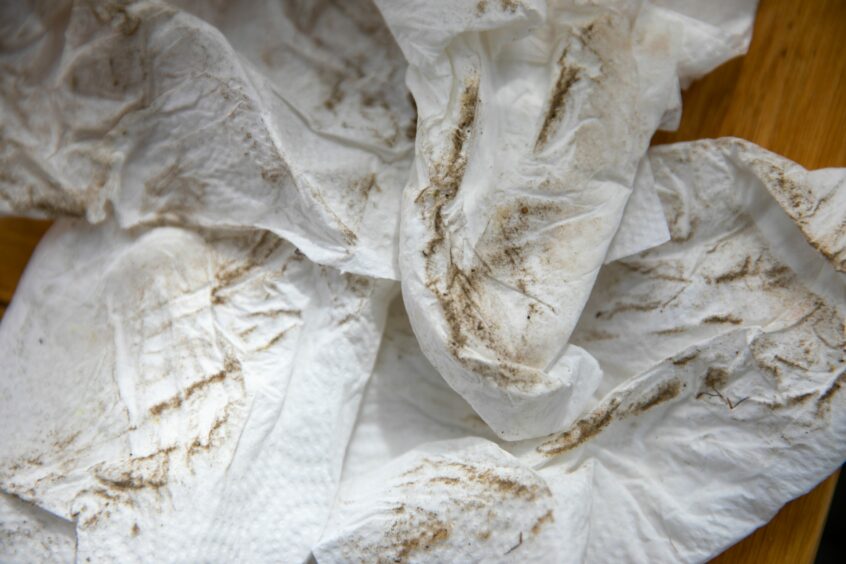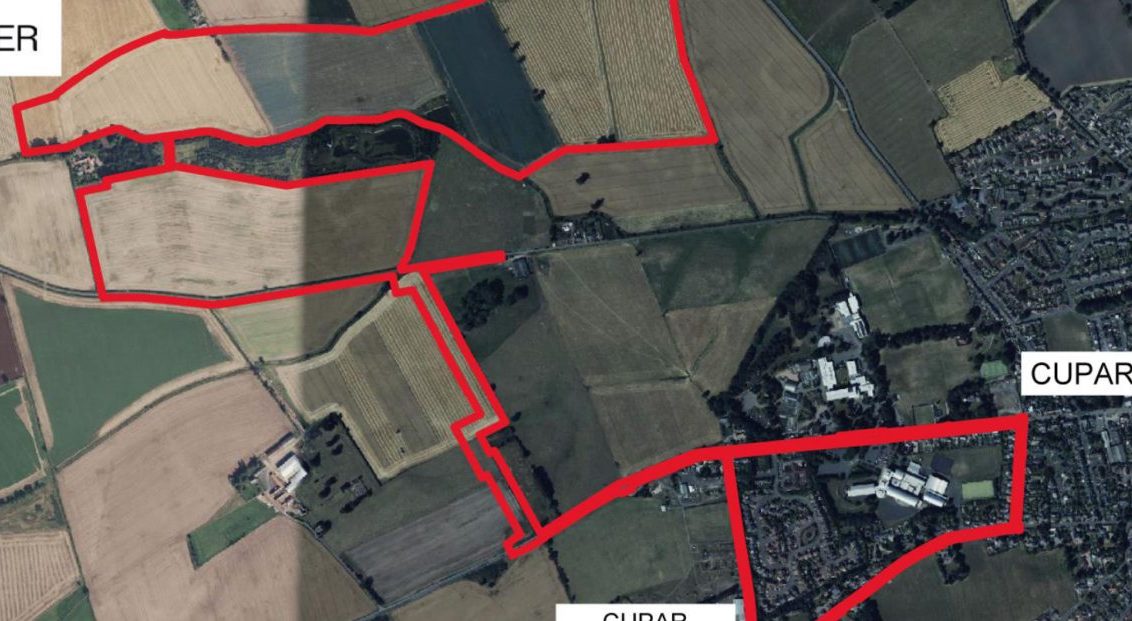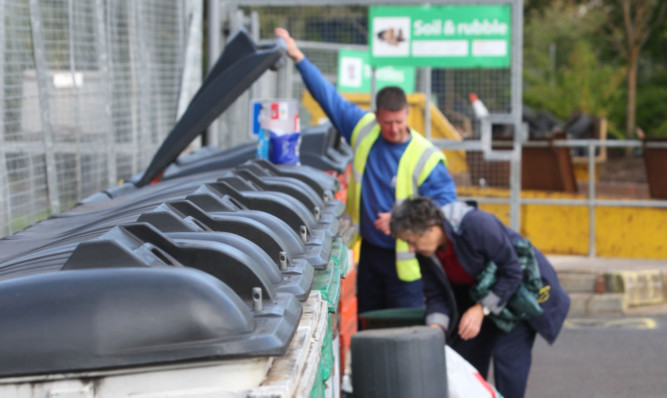“Poor housekeeping” at RWE’s giant biomass plant in Markinch this summer led to carcinogenic wood dust blowing into people’s homes, we can reveal.
Scottish Environment Protection Agency officials inspected the site on three occasions during August and September. We obtained the reports through a Freedom of Information request.
Investigators found “a significant build-up of wood-based dust”. They inspected the area inside the plant where up to 80 lorries make fuel deliveries every day.
Dust had also spilled out on to the A92 and the nearby roundabout.
The Sepa official wrote the build-up was “far worse than any previous observations on site over the past 4-5 years”. That was during the first inspection.
“Airborne dust was present to the extent that coarse dust particles began settling out on my notebook and arm,” an official noted during the second visit.
Biomass campaigners and residents have called for better air pollution monitoring to protect communities living close to the plant in the wake of the findings.
Sepa has said it will keep the company “under review”, but has not committed to more regular monitoring for dust in the air around the facility.
While “particulate matter” and other pollutants from the plant’s smokestack are closely monitored, potentially harmful particles in the air are not.
Sepa investigation reveals failings in RWE biomass monitoring
Almuth Ernsting is from the group Biofuelwatch.
She said persistent wood dust exposure is linked to allergic and non-allergic respiratory and nasal problems as well as to dermatitis.
“Long periods of wood dust exposure are also linked to two types of generally rare cancer,” she added.
“We must hope that Sepa will act to ensure that wood dust is contained in the future and does not again affect either residents or workers,” she added.
“We believe monitoring should be carried out routinely wherever large quantities of woodchips or wood pellets are stored or handled.”
How did dust escape from leading UK plant?
Biomass is a form of energy generation that creates heat and power through burning a mixture of wood waste and virgin wood.
There is an ongoing debate about whether it should be considered a source of renewable power.
Sepa investigators believe the dust escaped from lorries and the machinery used to transport wood and wood pellets into the plant.
They found a high proportion of sawdust, which is carcinogenic, in one of the samples taken from a home in nearby Markinch.
There are growing concerns around the health implications of exposure to dust from the biomass fuel.
The Health and Safety Executive (HSE) is taking separate renewable energy company Drax to court over concerns that wood dust from pellets used may have threatened employee health in Yorkshire.
“Obviously, this is different from a few weeks’ of complaints over wood dust against RWE, however, it shows how seriously the HSE is taking chronic wood dust exposure,” Almuth added.
Retired teacher Susan Glover believes pollution from the site is linked to poor health.
She also obtained details of the Sepa investigation through an FOI request after dust covered the windows of her home.
She said: “While the questions have been addressed, overall they remain platitudes and excuses.
“It is also worrying that the ‘cause was poor housekeeping.’
“Why does it take the concerns of the local community to bring this to the attention of Sepa?”
How has RWE responded to the dust escape?
The reports into the incident reveals RWE has put a number of measures in place since the complaints.
They included using dust extraction systems, water spraying of the area and intensified cleaning of the site.
An RWE spokeswoman said the company has been working with Sepa officials.
“We will continue to work with them and any recommendations for further improvements.
“[The company] is also investigating additional engineering solutions for dust management for other extremely dry spells.
“We shall continue to actively monitor the situation and will endeavour to implement localised measures when dry weather conditions are expected.”













Conversation